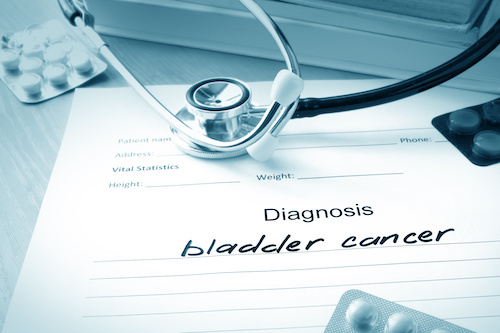
New Brunswick, N.J., May 1, 2022 — The bladder is part of the urinary system, which filters waste products from the blood and transports the waste products out of the body through urine. Cancer of the bladder develops when abnormal cells in the bladder start to grow out of control. While researchers are working to better understand the causes of bladder cancer, there a number of things impacting bladder health that can be controlled with a lifestyle adjustment. Saum Ghodoussipour, MD, urologic oncologist and director of the Bladder and Urothelial Cancer Program at Rutgers Cancer Institute and assistant professor of surgery at Rutgers Robert Wood Johnson Medical School, shares more.
- Quit Smoking. Smoking is by far the biggest risk factor for developing bladder cancer. People who smoke cigarettes are up to four times more likely than nonsmokers to develop the disease. The good news is that cigarette smoking is a risk factor that can be controlled with a change in lifestyle. Taking action to quit now will reduce the likelihood of bladder cancer developing later.
- Try to Limit Chemical Exposure. Certain chemical exposures have been linked with bladder cancer including those used in textile, dye, rubber, leather, paint, or printing. While it’s difficult to reduce exposure in certain occupations, following the proper safety protocols and using personal protective equipment can lessen the impact.
- Stay Hydrated. Drinking water has many health benefits. The American Cancer Society suggests that those who drink lots of fluids, especially water, tend to have lower rates of bladder cancer. The theory is that these people empty their bladders more often, which keeps chemicals from lingering in the bladder.
- Eat a Nutritious Diet. There is no specific diet recommended for the treatment or prevention of bladder cancer, however, the food one eats can help prevent many of the chronic conditions that increase your risk of cancer, such as obesity. The American Cancer Society offers more detail on diet and physical activity recommendations for cancer prevention.
- Talk to your doctor. In most cases, the first sign of bladder cancer is blood in the urine. Other symptoms include pain or burning sensation during urination, frequent urination, feeling the need to urinate many times throughout the night, feeling the need to urinate, but not being able to pass urine and lower back pain on one side of the body. It is important to talk to a medical professional about any of these symptoms or changes in urination.
Rutgers Cancer Institute together with RWJBarnabas Health is New Jersey’s only NCI-designated Comprehensive Cancer Center. Click for more information about the Urologic Oncology Program at Rutgers Cancer Institute, New Jersey’s only NCI-designated Comprehensive Cancer Center.
###
For journalists – contact:
Krista Didzbalis
Media Relations Assistant
732-507-8307
krista.didzbalis@rutgers.edu
For patient appointments/inquiries – contact:
844-CANCERNJ (844-226-2376)

